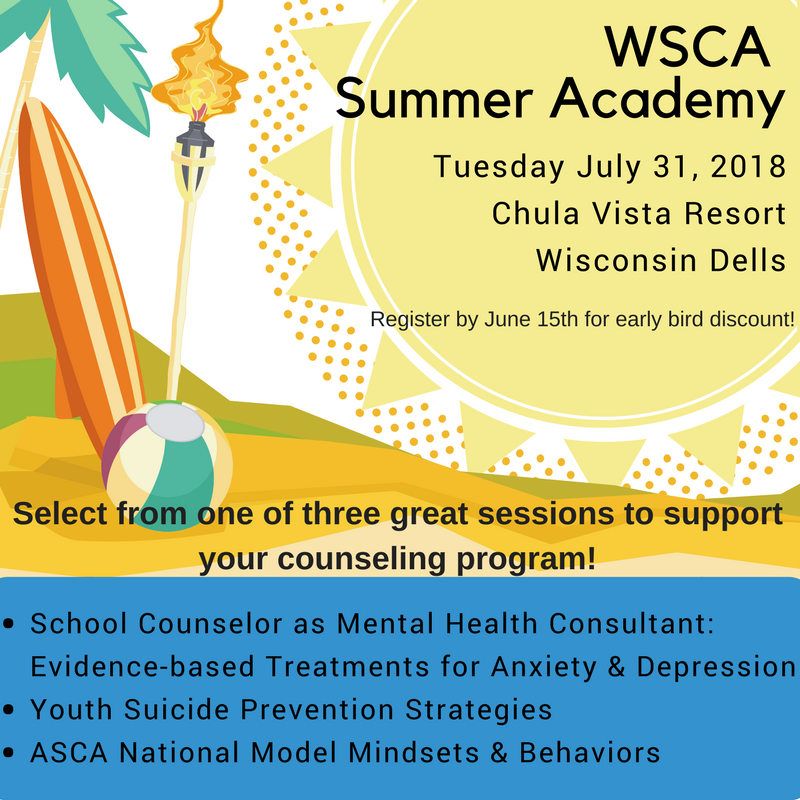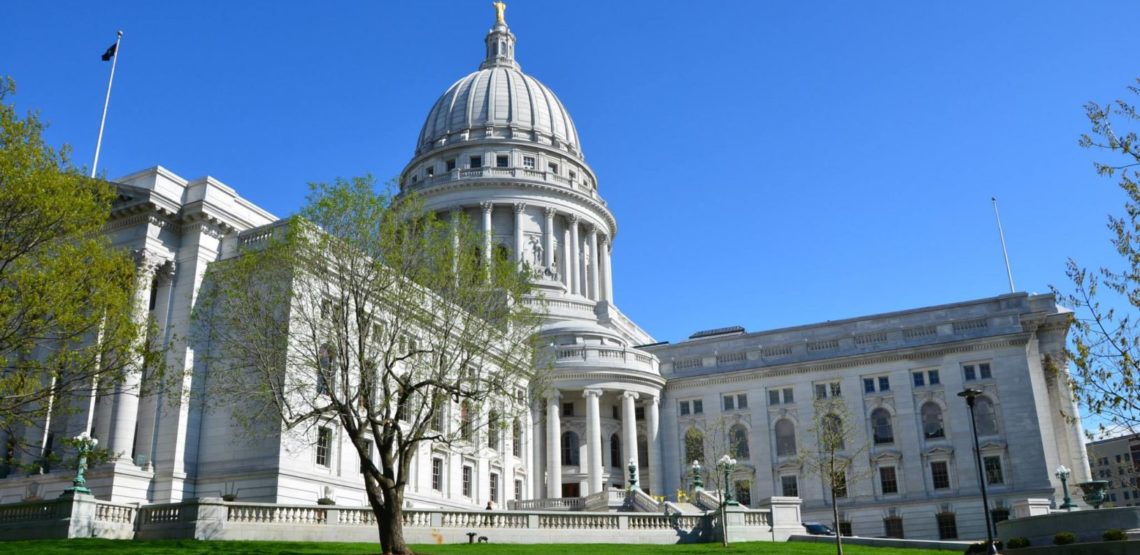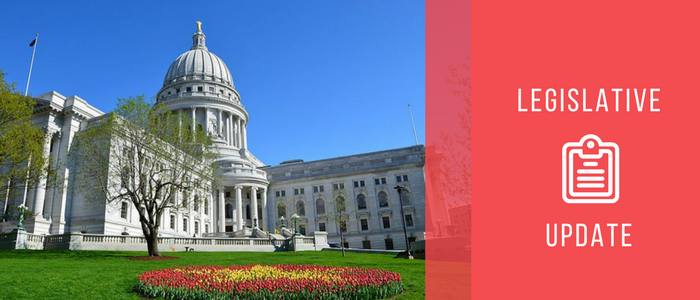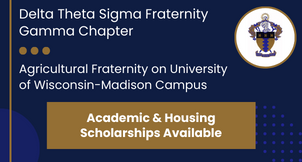April 2018

In This Issue:
Board Chair and DPI Consultant Message
This Month’s Feature
Summer Academy
Reflections on Afternoon on the Hill
Legislative Update
Counselink
Staff Spotlight
Committee Updates
A Joint Message from Your Board Chair, Olin Morrison & Your DPI Consultant, Gregg Curtis
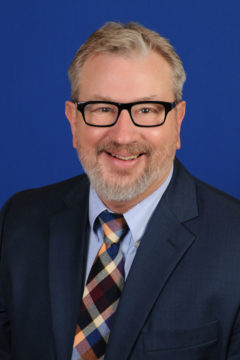
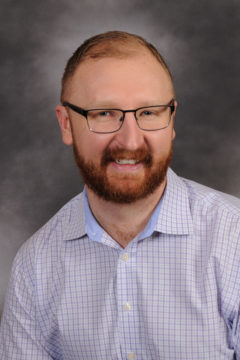
This spring the Wisconsin Department of Public Instruction began a transparent and comprehensive process for reviewing and revising the 2007 Wisconsin School Counseling Model Academic Standards. The process began on January 31, 2018, with a Notice of Intent to review and a month-long public comment/survey period. The comment period closed on March 1, and the survey feedback and the narrative comments were aggregated and analyzed at DPI. The State Superintendent’s Standards Review Council convened on March 22 to examine those comments and heard comments from Stacy Eslick, WSCA Executive Director, Dr. James Cook, Director of Apprenticeship and Training for the Wisconsin Chapter of the National Electrical Contractors Association (NECA), and Gregg Curtis. The purpose of the comment and information review was for the council to recommend to the state superintendent whether to revise the standards or continue to use the current version.
Presented to the council were an overview of the state of school counseling in Wisconsin (Stacy), a business/industry perspective of student needs (Dr. Cook.), and significant results from the survey/comments (Gregg).
Stacy spoke to the number of counselors compared to other pupil services roles and the importance of a comprehensive school counseling model as a way to serve all students. Dr. Cook talked of the emphasis business and industry is placing on the importance of non-academic “soft skills” for students transitioning to post-secondary education and early-career roles. A couple of key data points Gregg reported from the survey included the field’s beliefs that the current standards need revising (61%); with the majority citing changing labor market, national trends in the school counseling, supportive research, and the ability of local districts to meet student needs as the strongest rationale for revision. Also shared was the field’s belief that the counseling standards were most closely linked to CTE (85%), social-emotional learning (90%), and mental health (95%).
As part of the formal comments from Stacy, Dr. Cook, and Gregg, an essential question was asked of the council: “Do the things school counselors help students learn and the skills counselors help students develop meet the DPI definition of a “model academic standard” or are they more aligned with the definition of a “competency?”
Model Academic Standard: What students should know and be able to do in the classroom. They serve as goals for teaching and learning. For teachers, these answer the question “What do students need to know and be able to do in this subject area?”
Student Competency: Knowledge and skills that students need to be successful; not only in a classroom, but throughout their lives and across the three domains of student development: academic, social/emotional, and career development. For counselors, these help answer the question “How are students different as a result of the school counseling program?”
Operating with this distinction and the results of the survey respondents in mind, the panelists and the council had a discussion centering on what to do with the school counseling standards. This conversation essentially focused on three options:
Recommend that the current version of the School Counseling Model Academic Standards continue to be used to guide counselors’ practice.
Recommend School Counseling Model Academic Standards continue to be considered in line with the definition of an “academic standard” and follow the state’s strict, prescriptive protocol and process to revise them.
Recommend that the current School Counseling Model Academic Standards be revised using a process that moves away from formal academic standards and follows a path toward identifying learning competencies in this area.
Following a brief question and answer session that focused on school counselors’ roles and expectations, the Council recommended that the State Superintendent pursue option #3. This will clear the way to adopt the ASCA Mindsets and Behaviors as the WI standards of practice.
The decision was made after a careful analysis of the pros and cons of the different options. The path recommended is similar to the work on Wisconsin Social/Emotional Learning Competencies. This is the recommendation of the Wisconsin School Counselor Association, and this has been done in consultation with leadership for the Division for Learning Support, and the Office of the State Superintendent. With the State Superintendent’s approval, that work will proceed in the Division for Learning Support in the Student Services/Prevention and Wellness team, and not return to the Standards Council. In the future, it is DPI’s intent to post links to the Social Emotional Learning competencies and the revised School Counseling competencies in a new section of the Academic Standards webpage, in addition, to their being shared through the Student Services/Prevention and Wellness team web pages.
Counselors Supporting Student Success:
RUSD’s Approach to Career Academies
By Jennifer Binneboese, School Counselor
Washington Park High School, Racine Unified School District
School Counselors are key partners in the schools. Counselors have unique partnerships with their administrative teams, with other student services staff, and with teachers. The goal of these partnerships is to increase student engagement, achievement and ultimately lead students to be better prepared to enter college and/or the workforce.
In the Racine Unified School District (RUSD), the high schools have transitioned to a career academy model. This model was adopted from the Academies of Nashville – Metro Nashville Public Schools. These career academies are part of the National Career Academies Collation, which has national standards of practice.
The career academy model has three key elements:
- A small learning community (SLC)
- A college-prep sequential curriculum with a career theme
- An advisory board that forges partnerships with employers, higher education institutions, and the community
Within the academies, staff are grouped into teams (grades 9 & 10–12) and work across several academic and technical subjects. Students are grouped into cohorts for these classes and follow a program/pathway of study. There is an advisory board made up of a variety of stakeholders, which helps to identify a set of experiential learning events that show students the applications of academic subjects to career and college fields and delivers work-based learning experiences. The career academy is typically one of the 16 career clusters and is then made up of three to five career pathways.
The Academies of Racine is built on relationships with multiple community stakeholders, including RUSD, Gateway Technical College, UW – Parkside, Higher Expectations for Racine County, Racine County Workforce Development, United Way of Racine County and the Racine area businesses. These community agencies work together to align resources, helping to provide improved structure, to prepare all students to be college and career ready after graduation.
The high school curriculum in RUSD already had in place sequenced career and technical education (CTE) courses, which culminated in a capstone, coop or youth apprenticeship course/program. The limitation was that few students took advantage of the full sequence of courses and were then unable to get to the highest level CTE classes. This was in part due to students not having sufficient career exploration opportunities early in high school. One of the goals of the newly created Academies of Racine was to provide career exploration opportunities starting freshman year through a set of experiential learning opportunities. These opportunities include a Freshman Seminar class (using Career Cruising, led by counselors), a Career Expo, local college campus visits, and coordinated site visits aligned with their chosen career pathway.
The other key focus of the academies was preparing students to be college ready. This segment has multiple components, including adjustment of graduation requirements to align with four-year college admissions requirements, implementation of block scheduling to provide opportunities for teachers to collaborate together and for students to add classes to their schedules, addition of additional dual credit opportunities through partnership with local colleges, and expansion of Advanced Placement and Project Lead the Way course offerings. All of these changes are working to help our graduates be better prepared to be successful in the postsecondary setting.
RUSD counselors have played a frontline role in helping to form the Academies of Racine. They have participated in site visits to the Nashville School District to see the career academies in action, have been part of visioning team summits, have assisted in developing district benchmarks for what a college and career ready graduate would look like, and are key members of the academy teams. The counselors have aligned the work they were already doing as part of the district’s comprehensive counseling model with the newly created college and career planning components and have weaved them into the district’s new Academic Career Plan (ACP). The RUSD counselors are strong proponents for the academies and their role in connecting academics to career plans and helping students leave high school prepared for college or to enter the workforce with earned college credits or industry certifications. This academy model not only strengthen the counselor’s role in the schools, but it includes additional building staff to help reinforce this critical message.
Reflections on Afternoon on the Hill
“Never doubt that a small group of thoughtful, committed, citizens can change the world. Indeed, it is the only thing that ever has.” Margaret Mead
Comprehensive school counseling, Academic and Career Plans, the necessity of maintaining school counselors at every level, data-driven decision-making, WSCPAR’s, mental health initiatives, relationship-building, networking… these are the topics that your colleagues around the state addressed with legislators on behalf of all school counselors during our annual Afternoon on the Hill event. Over 50 thoughtful, committed counselors shared the voice of our children, our parents, our families, and our communities, with the stakeholders who hold the power and the process to support students and education across the state through funding and legislation. These passionate counselors, counselor educators, and graduate students closed the door to their offices early and stepped out of their comfort zones to dialogue with legislators about key issues. Thank you!
Participants took on various roles during their AOH legislative meetings. While some counselors shared stories and concerns about their school and district, others educated legislators about the role of the school counselor. Sharing of Wisconsin School Counseling Program Accountability Reports, listening to legislators talk about emerging issues, debunking myths and misinformation, and my favorite… asking for help to ensure we are referred to as school counselors, not guidance counselors, were some of the topics of discussion during our AOH visits.
As we wind down another school year and gear up for another, let us ALL be the voice of students. There are many ways to get involved in advocacy and I hope you will consider participating in some small way. Remember, if you think you are too small to make a difference, just ask a mosquito!
Advocacy Ideas:
- Meet with your administrators to share out what you are doing (we expect them to know and think they do, but…)
- Present to the school board annually on your role or on a program/project undertaken
- Take on leadership roles within your school, district, or community
- Participate in next year’s Afternoon on the Hill
- Attend a public hearing or provide feedback on legislative issues. Respond when WSCA puts out a “Call to Action.”
- Keep up-to-date on state policy and legislation issues and actions – Wisconsin Eye is a great resource: http://www.wiseye.org
Consider joining the WSCA Government Relations Committee. Contact Rachel Pufall at govrelations@wscaweb.org
Thank you to everyone that contacted legislators about the school safety bill that was passed by the Assembly and Senate. While we didn’t have more funds allocated to support hiring school counselors, we are heartened to know that our preventive and programmatic work in creating a positive school climate and reducing school violence was recognized by parents, DPI, superintendents and other professional organizations during hearings about the bill. Our voices are being heard and stakeholders are starting to recognize the critical role we have in supporting students. Advocacy can be a seemingly never-ending process of building relationships, educating stakeholders and communication. We promise that we are committed to ongoing advocacy for the long game, not just quick wins.
WSCA will continue to advocate for you! Please join us in this work and begin taking small steps to advocate for your profession.
Stacy Eslick, WSCA Executive Director
Read the Current Issue of Counselink Here
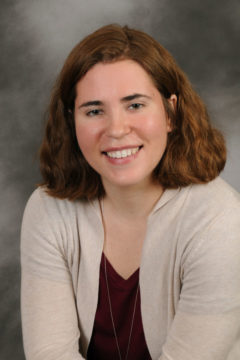
Holly Kortemeier
Graduate Student Committee Co-Chair
Why did you decide to get involved with WSCA?
I chose to get involved with WSCA because I thought it was an excellent opportunity to continue my development as a professional, to connect with peers and colleagues, and to learn more about the field of school counseling at state and national levels. My experiences through WSCA have surpassed my expectations!
Where do you work currently?
I am in my final year of graduate school at UW-Whitewater and hope to find a school counseling job in the near future!
I am currently reading “Wild” by Cheryl Strayed. The next book on my list is “Unselfie” by Michele Borba.
I hope to help graduate students connect with their peers and future colleagues so that their awareness and knowledge of the school counseling profession can be enhanced. I also hope to create and facilitate positive experiences for graduate students so that they are encouraged to be involved in WSCA in the future.
My favorite aspect of school counseling is working with children and adolescents. Interacting with students throughout the day, gaining insight into their worldviews, playing games with them, and making personal connections with kids energizes me!
I want to become an educator because I believe educators are uniquely positioned to positively influence the lives of many young people. My passion for children, education, and mental health steered me towards the profession of school counseling.
When I am not at school I enjoy hiking the trails of Wisconsin with my friends, spending time with my family on my aunt’s farm, traveling to foreign countries, reading autobiographies, and coaching youth sports.
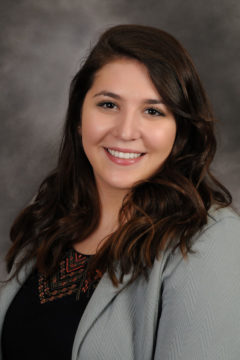
Brianna Sukenik
Graduate Student Committee Co-Chair
I decided to get involved with WSCA because of the amazing networking opportunities. As a graduate student, I don’t have the opportunity to meet and talk with counselors around the state, but with WSCA, I’m able to meet new people, talk to them about their work and accomplishments, and ask questions to help my growth as a future school counselor.
I’m currently reading a lot of textbooks! But, I’m starting to read more about self-care and exploring different options for myself so they become habits before getting into the field.
I hope to reach more school counseling graduate students across the state and encourage them to be more involved in WSCA during their time as students and as future professionals. I would love to have every school counseling graduate student in the state be a WSCA member and I plan on encouraging them to do so!
Because I’m not in the field yet, it’s hard to say what I will love about school counseling. As of right now, I love the idea of being that smiling face for kids who don’t always have someone there to encourage them. I look forward to being massively involved in the school and community as a leader and a face well known to all students.
I chose to pursue a career in school counseling because it is one of the most important resources in a community (sometimes the only resource for a child). I want to help kids become more confident in themselves and gain a sense of self-acceptance to guide them in their choices for their future.
Professional Recognition Committee
Every year, WSCA is honored to partner with Career Cruising and Method Test Prep to provide four high school seniors with $1,000 scholarships towards continuing their post-secondary education.
Here are the 2018 Career Cruising (Xello) & Method Test Prep High School Scholarship Winners:
Molly Thorne – Mishicot High School
School Counselor – Sarah Greenwood
Eva Schrank – River Falls High School
School Counselor – Sheri MacBeth
Jessica Lange – Stevens Point Area Senior High School
School Counselor – Jennifer Ries
Heaven Lucas – Muskego High School
School Counselor – Caitlin Riegert
Additionally, WSCA awards $1,000 scholarships to two graduate students who are pursuing their Masters Degree in school counseling.
Here are the 2018 Mike Troy Graduate Student Scholarship Winners:
Lauren Eierman – Marquette University
Holly Koretmeier – UW Whitewater
Conference Committee
The 53rd annual Wisconsin School Counselor Association conference in Madison this past February proved to be a great experience for many attendees. The conference committee takes your feedback very seriously and strives to make each conference a better experience than the last! Take a look at some of the positive feedback that was shared from this year’s conference survey:
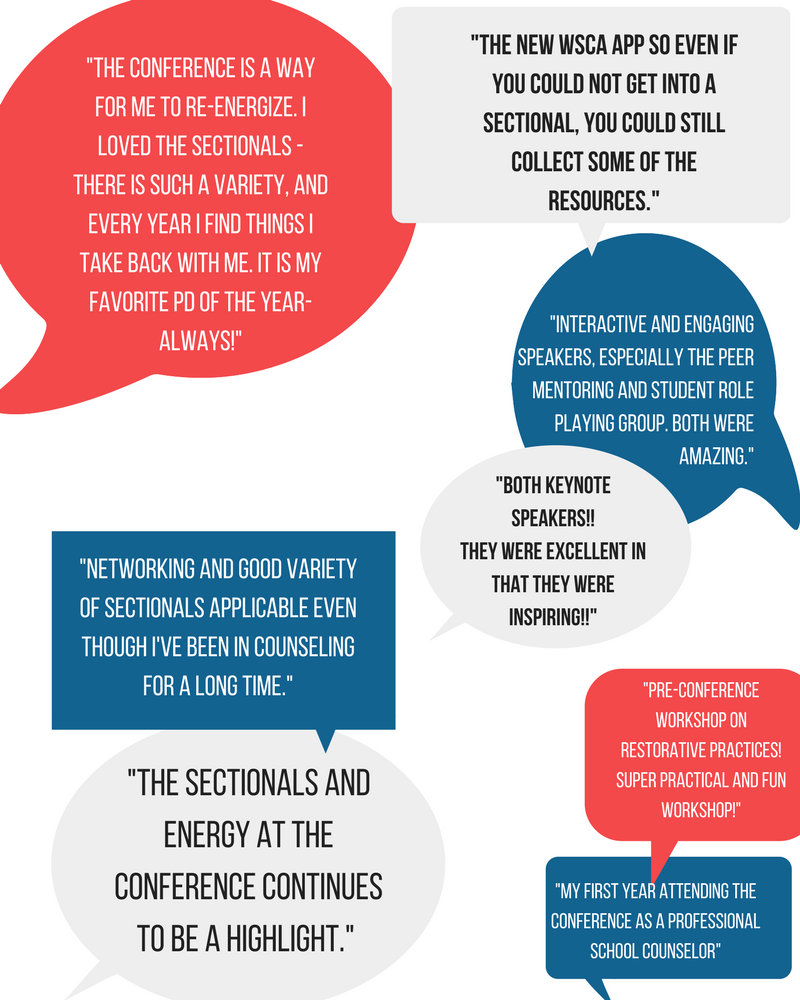
Don’t miss out on next year’s amazing professional development opportunity!
SAVE THE DATE for the 2019 WSCA Conference:
TUESDAY, FEBRUARY 5 – THURSDAY, FEBRUARY 7, 2019
WSCA 54th Annual State Conference
The Power of Hope
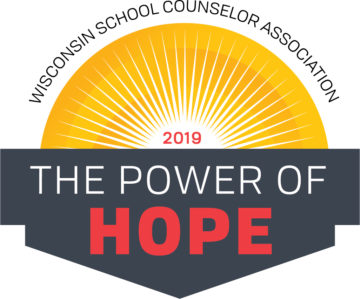
Monona Terrace Community & Convention Center
Madison, Wisconsin
Call for 2019 WSCA Conference Presenters!
Did you hear from a conference presenter this year that sparked your interest in a certain topic? Do you have an idea you would love to share with other school counseling professionals? Then consider presenting your information and ideas at next year’s conference. There are two ways to be involved in speaking at the WSCA conference:
- The call for 2019 Preconference Workshop Speakers has begun. We invite you to share your expertise with other counselors! Tell them about the unique programs developed in your school district. The purpose of the conference is to provide new challenges for professional and personal growth. The Preconference Program Proposal forms will be available soon at www.wscaweb.org. Please note the submission deadline of June 1, 2018.
- The search for 2019 Sectional Presenters is on! The heart of all WSCA Conferences will always be the sharing of material from school counselors in the trenches. Share your latest and greatest practices and ideas at the 2019 WSCA Conference by doing a one-hour sectional. Sectional Proposal Forms will be available soon at www.wscaweb.org.
Criteria used for review and selection of program proposals will be based on the interest in topic, and clarity of the proposal. Diverse and innovative programs are encouraged. Programs will be chosen that meet the needs of all levels of school counselors and other professionals and individuals interested in counseling. Presentations encouraging the purchase of books, materials or services will be not be accepted.
Publications Committee Update
Are you interested in helping with WSCAlink?
Here are two ways to get involved:
Submit an article! Anyone can write for our Tips for Best Practice section. Articles should be no more than 500 words and offer practical ideas that can be implemented right away. Past topics include a small-group that worked well, a great classroom management strategy, an enjoyable mindfulness technique, and more.
Join the Editing Team! Do you have a penchant for pronouns? Do you leap for language? Do you delight in descriptions? If so, we would love for you to join the Publications Committee! Responsibilities include editing 2-3 WSCAlink issues per year. Contact us if you jump for jargon!
Send questions/articles to publications@wscaweb.org and then we will let you know when it will be used. Don’t be afraid, be published!
All submissions are due by the 10th of each month to publications@wscaweb.org
Upcoming topics and suggestions for articles include:
May: Reviewing Your Program’s Effectiveness
Using data in your audits
SPO/PPG write-up tips
June: AODA Programs of Promise
Supporting Students with AODA Concerns
Partnerships with Community Organizations
July: Recharge Your Own Practice
Tips for Self-Care
Summer Reading Suggestions



